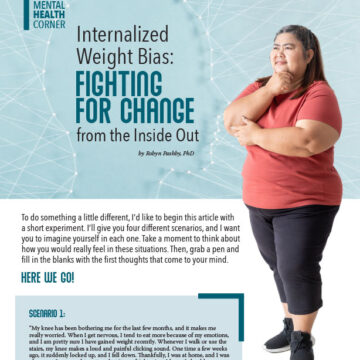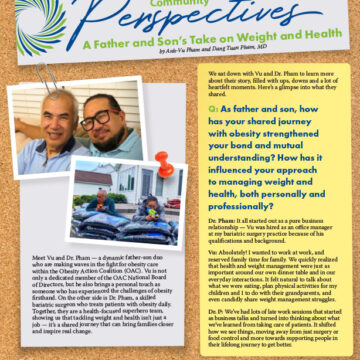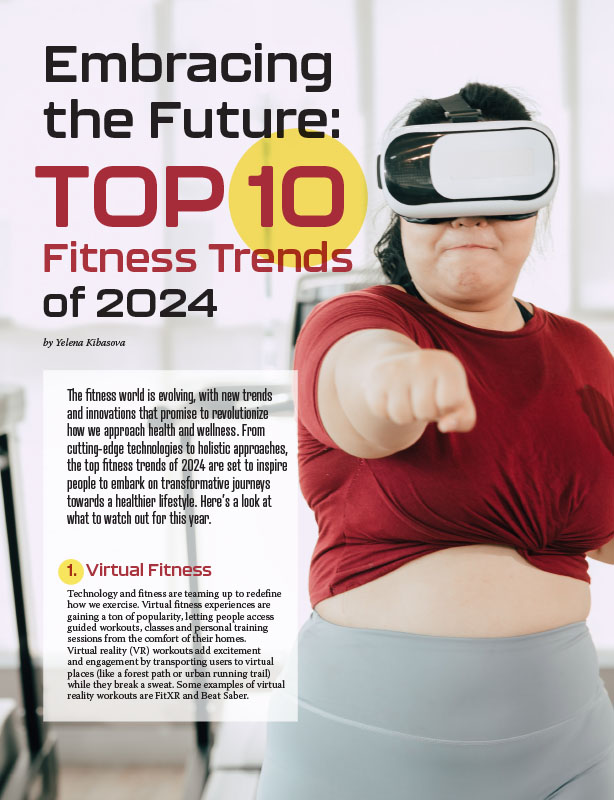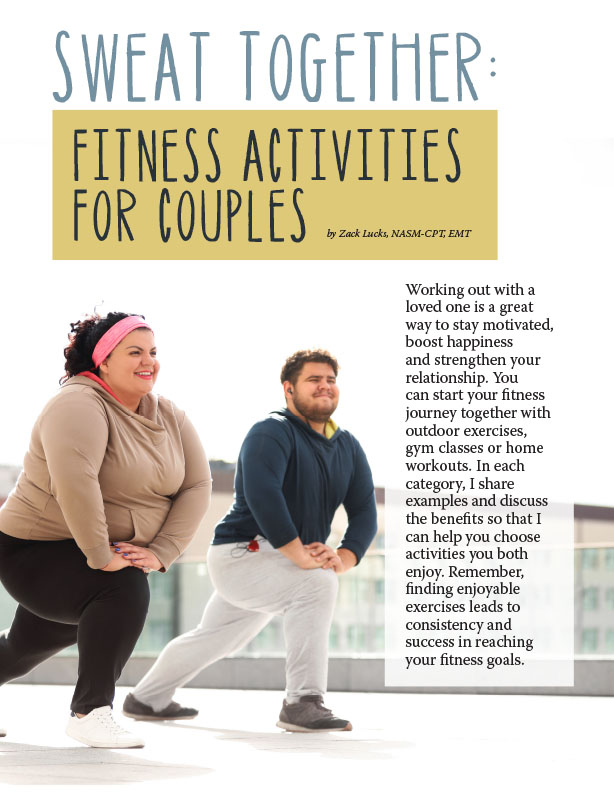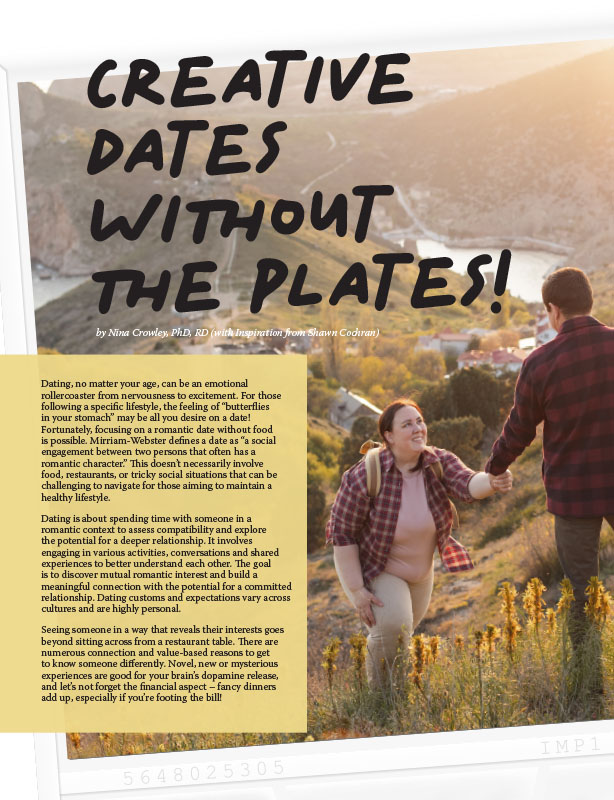Tackling Obesity: A Conversation with Football Legends Dick and Matt Butkus


by Kendall Griffey and Michelle “Shelly” Vicari
Fall 2023
Editor’s Note: The Obesity Action Coalition is deeply saddened by the passing of legendary Chicago Bears linebacker Dick Butkus.
Recently, OAC had the honor and pleasure of interviewing Mr. Butkus and his son, Matt, for our Fall issue of Weight Matters Magazine. He was funny, candid, kind and thoughtful. In the interview, we discussed football, his favorite memory on the field and his mission to help others through the Butkus Foundation’s Takes Heart initiative and the NFL Alumni Association’s Tackle Obesity program. He expressed the importance of addressing your health and weight for yourself and those you love.
We offer our condolences to Butkus’ family, friends, teammates and the NFL Alumni Association. Mr. Butkus was truly a legend who will be missed and remembered.
Dick Butkus is renowned for his strength and dedication, both on the football field as a legendary linebacker for the Chicago Bears and off the field as an advocate for obesity awareness. He also inspires men to be proactive about their health, a trait he shares with his son, Matt Butkus, who is a football great in his own right.
During his acclaimed career from 1965 to 1973, Dick, a Hall of Famer, solidified his position as one of the greatest linebackers in football history. His impressive accolades include being a 5-time First-Team All-Pro, an 8-time Pro Bowler, a 2-time Defensive Player of the Year, and a member of both the 1960s and 1970s All-Decade Teams. Matt is a famed University of Southern California (USC) defensive lineman for the Trojan football team and part of the 1990 USC Rose Bowl championship squad.
The OAC had the privilege of conversing with the legendary linebacker and his son Matt. During our discussion, we spoke about their involvement with the NFL Alumni Association’s impactful “Tackle Obesity” campaign, learning the reasons behind their strong commitment to raising awareness about obesity and men’s health. We also had the opportunity to reflect on their remarkable playing days.
OAC: Welcome, and thank you to you both for taking the time to talk to the Obesity Action Coalition’s members! We know so many of our members are fans of you both.
You both have had such amazing football careers! Dick, what was the most memorable moment or game from your playing days with the Chicago Bears, and what made it so significant or special to you?
Dick: Well, I would say the game against the Washington Redskins. George Allen was my coach when I was a rookie – he drafted me and was there for one year. He left and went to the Rams, and later he went on to the Redskins. At each place, he tried to trade for me. We had a good relationship all these years.
So, during the Redskins game, it was late in the season, and they needed to win one of two games to make it to the playoffs. One of those games was against us at Wrigley Field. The score was tied, and we had just scored a touchdown. I was on the extra point team, and we lined up to kick the extra point, which would give us a 15 to 14 lead. There was only a minute or two left in the game.
As the ball was snapped, I heard the crowd roar, and I turned around to see what was happening. I noticed the ball bouncing on the ground, but I was running in the opposite direction. Our quarterback, Bobby Douglass, picked up the ball, and I signaled to him, waving my hand, for a pass. He threw the ball to me, and I made the catch, scoring the two-point conversion. Thanks to that play, we managed to beat the Redskins and my former coach George.
What nobody knew at the time was that before that play, I had taken a kick right near the eye, causing swelling that was getting worse as the game went on and affecting my depth perception. Here, it’s time to try to catch a pass, and I’m only looking out of one eye, and when you look out of one eye, it’s hard to judge. And I jumped up like I thought the ball was going to be high, and it wasn’t, it was right there. All the guys, after watching the game, said, “Look at this hotdog, jumping up to catch the pass, you caught it around your waist.” They didn’t know that I could only see out of one eye. So, catching an extra point was the most memorable moment. We beat the Redskins, and they went on to win their last game, so we both came out alright.
OAC: Yeah, I was expecting you to say one of your hits because as I was preparing for our interview, I started to watch this YouTube video that had some of your greatest hits. And oh my gosh, the power! You were menacing. I wouldn’t want to be on the opposite side, staring you down.
Dick: Well, I’ll tell you what, I am feeling it all now.
OAC: Well, I assume that size back then was in your favor. They were probably encouraging you to maintain a higher weight.
Dick: Back when we attended training camp, it lasted around six weeks, and we would scrimmage every day to get in shape. However, things have changed, and now training is a year-round commitment. Throughout my playing years, I had to work outside of the sport to make ends meet. I was a car salesman and also worked at a dairy during the off-season, sometimes even on off days during the season. Nowadays, the higher salaries in sports allow athletes to focus solely on maintaining their bodies and dedicating themselves to the game without needing additional jobs. The unfortunate thing about it is that many of these guys tend to stop training after their careers come to an end.
OAC: Matt, football was in your blood. What was your most memorable moment on the field?
Matt: I would say winning the 1990 Rose Bowl stands out as a significant moment for me. Back then, the Rose Bowl was known as “The Granddaddy of Them All.” It was even more special to me because my dad had played and won, and a cousin played but lost. So, it felt like a Butkus family tradition to play in that game.
So, winning the 1990 Rose Bowl and playing with the likes of Junior Seau, Willie McGinest, and Tony Boselli, my old roommate, who was inducted into The Pro Football Hall of Fame last year. Mark Carrier, who played with the Bears forever, Johnny Moore Curtis Conway and others.
OAC: Sadly, it often takes a health scare for men to address their weight and health. Dick, can you tell us what first influenced your dedication to raising awareness about health and wellness, particularly in relation to obesity?
Dick: I had a friend named Murphy Dunn who called one day and asked if I wanted to take an EBCT (Electron Beam Computed Tomography) scan of the heart. I agreed to do it, and the plan was to do the scan on a Monday. Since I was going to be in Vegas around Thursday, instead of driving home, I said, “Well, I’ll go down to Death Valley on Friday Night, and on Saturday, I’ll work out and hike all over to get in shape for this test on Monday.”
I checked into a local hotel and asked the server during dinner how hot the temperature had gotten that day. She informed me that it reached around 113 degrees! The next morning, I walked 18 holes on the golf course all by myself and then took a dip in their mineral pool. After lunch, I intended to go on a hike up a nearby hill.
However, when three o’clock came around, I opened the door, and the heat was absolutely unbearable. The heat hit me like standing in front of a steel mill furnace. I gave up, and I just drove home. Reflecting on the final results of my scan, I often find myself wondering if I could have found myself in a dire situation out there, with buzzards circling overhead. No one knew I was there, and it was really a stupid thing to do, actually.
Anyway, on Monday, we proceeded with the EBCT scan, and during the process, there seemed to be some discussion going on. I couldn’t figure out what was happening, but Murphy Dunn, my friend from Chicago, is a bit of a comedian. I began to wonder if he and the medical staff were playing some sort of prank on me. Murphy had gone in for his scan before me and was out in just five minutes.
When it was my turn, I went in for the scan, and afterward, we were waiting around. Finally, a man in a white coat walked in and asked me when my last stress test had been. And I said, “Stress test? I’ve never had a stress test.” He gave me one, and I flunked. It kind of surprised me because I thought I was in pretty good shape. I had some excess weight, but I didn’t think it was a significant concern. They said I was going to have to do an angiogram because they were seeing some blockages. By Tuesday, I went in for the angiogram, and they discovered I needed a 5-way heart bypass. (Quintuple bypass surgery is a complicated heart bypass surgery. It is performed to treat five major arteries that supply the heart when they are severely blocked).
When I woke up after the scan, I jokingly asked, “Come on, Doc, how bad could it have been?” To my surprise, the heart surgeon’s response was, “Well, Dick, the best way I can explain it to you is that you had one foot in the grave and one on a banana peel because, in 30 days, it could have been over.” That got my attention and made me realize the seriousness of the situation.
I hooked up with Dr. Santora, a cardiologist, and we’ve worked together on this initiative that we have now at the Butkus Foundation called Takes Heart™. After my heart bypass, I knew I had to make some adjustments, and the first thing was my weight. Obesity causes so many things, like diabetes, heart problems and blood pressure problems.
I was talking to my older brother today. It’s his 88th birthday, and we’re both going over all our injuries and our aches and pains. I thought it was because of football, but just generally, when you get older, it’s even more important to control your weight and health. The NFL Alumni’s obesity program really helped. Getting started was relatively easy, but I must admit that staying on track was quite challenging. Struggling with weight and managing it is not a character flaw. It’s not about losing a few pounds and then feeling embarrassed or ashamed if you gain some back. The key is not to be embarrassed about it but to approach it as part of a continuous effort towards a healthier lifestyle. You know what, I just say, look, here’s a proven fact that managing your weight could help you live longer. People depend on you, your family and friends, and whoever loves you.
OAC: Progress, not perfection. Do what you can each day and keep moving forward.
Dick: Exactly.
OAC: Matt, your Dad had a personal health scare that led him to address his health and weight. How did that impact you? Why did you get involved in this cause?
Matt: I remember when that happened to my dad, and we all went in, and we got screened. When a guy with no symptoms needs a five-way bypass, that’s a wake-up call for everyone in the family. There wasn’t really a health scare on my part. My dad took one for the team. So that’s when things changed.
It’s a battle every day. Some people have different schedules. Some people travel, and it’s tough when you travel. When you’re home, you can cook healthier, you don’t have to go out much, and you can exercise. But as I said, it’s really tough. As long as you’re making progress, that’s a good thing – not turning your head and putting it in the sand and ignoring it.
At the Butkus Foundation, our focus has always been on promoting health through proper nutrition, rigorous training, and playing with a winning attitude. When the NFL Alumni’s program came along, we embraced it. Our journey has had its ups and downs, but I am thankful that both my dad and I are not where we started. We’ve made significant progress, and that’s something to celebrate.
As I look at myself in my 50s and my dad at his age, I recognize that staying active is crucial. That’s something we should strive for.
It’s a struggle to maintain a healthy lifestyle, but the key is to stay focused and keep moving forward as best as we can. We must remember our goals and the importance of taking care of our bodies. By staying dedicated to our health, we can continue to lead fulfilling and active lives, both in and outside of sports.
OAC: Many men often feel societal pressure to handle everything on their own and fix any problems that arise. However, there comes a point in everyone’s life when they realize the importance of seeking help. Can you recall a specific moment when you experienced this realization? How did it change your perspective on seeking assistance?
Dick: When the NFL Alumni Association started talking about introducing their obesity program, they were picking guys to participate. I decided to try the program. I followed the plan to a tee, and it was effective – I lost about 47 pounds. But now it’s been over a year, and sometimes I get a little bit off track.
For the rest of the guys: it’s not a flaw that you can’t do this or find this difficult. Find me someone who doesn’t think it’s difficult and hasn’t had a problem with weight, and I’ll show you a liar. Because it is difficult, and you’ve gotta face it like a disease.
I started the program 12 years after my heart bypass procedure, but I wish they had it earlier. Now that I’m getting older, it’s difficult for me to work out because of all the injuries that I have. The weight isn’t coming off like it did before, and it’s ticking me off a little bit. Sometimes, I feel ashamed, but then I step back and think about how my body is still able to do a bunch of things.
Matt: Well, my answer is similar to my dad’s. We’re in the health business, so we should practice what we preach and lead by example. The program came about, and we wanted to try it.
Doing it alone can be tough, so I’ve been trying to get a few guys to join me for workout events at a nearby park. We promote these through social media. It’s a fun and supportive environment. It doesn’t feel like work when you’re having fun together.
I remember struggling to run up stairs with a friend who was in good shape. Initially, I couldn’t even make it up two floors, but with each day, it got easier and easier. Now, I find myself jumping rope and running up stairs. Finding a friend or a group of friends to support you can go a long way.
OAC: Can you tell us more about your involvement and work in raising awareness about the impact of obesity through the Butkus Foundation and the NFL Alumni Association’s Tackle Obesity Challenge?
Dick: Well, obesity is closely related to an initiative that our foundation decided to undertake and collaborate on, known as Takes Heart™ trying to get people to screen themselves. For example, our foundation has worked with American Indian tribes, who are disproportionately affected by diabetes, obesity and heart disease. We locate places close to them that could do a scan at a reduced cost.
We have the Butkus Award, which honors a player’s athletic achievement and service to the community. When a player receives the Butkus Award, he’ll know two things. First, he’s the best of the best linebackers in America. Second, and in the long run, most important, he will understand that his recognition brings a responsibility, like giving back to others.
We wanted to do more, and so we started the Takes Heart initiative, which blends perfectly with the NFL Alumni’s Huddle Up: Let’s Talk Obesity Program. Heart disease is one of the leading killers in the world, and obesity plays a role. We’re trying to bring awareness to that.
OAC: What message would you like to convey to former players, fans, and individuals in general regarding the importance of maintaining your health and treating obesity?
Dick: After your athletic career ends, you might experience changes in your body, and your weight may be higher than before. Being aware of your health and where you stand is crucial. Ex-players often struggle to keep weight off, but the right attitude can make a difference.
We’ve conducted thousands of scans, and it’s alarming that two out of ten people discover an immediate health problem that needs attention. In my case, I had no symptoms, but the scan revealed a serious issue that required immediate action. If I hadn’t gotten that scan, I might not be here today. It was a significant wake-up call. Before my five-way bypass, some people might have seen me as invincible, but that experience made me realize the importance of taking care of my health.
I feel a responsibility to pass on this knowledge, especially to my family. If you care about your loved ones who depend on you, it’s essential to prioritize your health. There’s plenty of information available on how to improve your health. Improve your health even just a little bit, and you’re headed in the right direction.
Matt: I think it’s important to have more people who have the eyes and ears of the public bring awareness to the cause. We all put our pants on one leg at a time. Just because someone is a public personality doesn’t mean that nothing bad can happen to them. My dad is living proof of that. And go get scanned. It doesn’t hurt to get a scan to check in on your health. If your numbers come back good, that’s great, and now you have a baseline. But if not, you can catch it and take steps to improve your health. I know a lot of men don’t go to the doctor to get a screening, but we’re here to say it’s worth it to go get your health checked and possibly catch a problem before it’s too late.
OAC: Now for a fun question: What’s your favorite tailgating food?
Dick: Lithuanian Sausages Sandwiches
Matt: What we do during our tailgates in Chicago is we pound down a ribeye, and it’s basically the same thing as a sausage sandwich. It’s a ribeye sandwich with onion, and then there’s a little bit of butter involved. That’s my favorite! (For a healthier version of Matt’s ribeye sandwich, click here).
Forty-two percent of men in the U.S. are affected by obesity. No matter where you are in your health journey, you are not alone, and there are resources to help you along. Get started by visiting the OAC Resource Library at obesityaction.org/library or make an appointment with a qualified and compassionate healthcare provider who specializes in obesity at obesitycareproviders.com.
Learn more about The Butkus Foundation and the Butkus Takes Heart Initiative™ at ButkusFoundation.org.
Learn more about the NFL Alumni’s Tackle Obesity at tackleobesity.com.
About the Authors:
Kendall Griffey, OAC Communications Manager, graduated from the University of North Florida with a B.S. in Communications with a focus in public relations. Kendall is passionate about her work in the nonprofit sector and is driven to make a meaningful impact.
Michelle “Shelly” Vicari, OAC Senior Program Manager and Past OAC Chair, majored in Child Development and Family Studies as well as Political Science at San Diego State University. Go Aztecs!
by Yelena Kibasova Spring 2024 The fitness world is evolving, with new trends and innovations that promise…
Read Articleby Zack Lucks, NASM-CPT, EMT Winter 2024 Working out with a loved one is a great way…
Read Articleby Nina Crowley, PhD, RD (with Inspiration from Shawn Cochran) Winter 2024 Dating, no matter your age,…
Read Article




